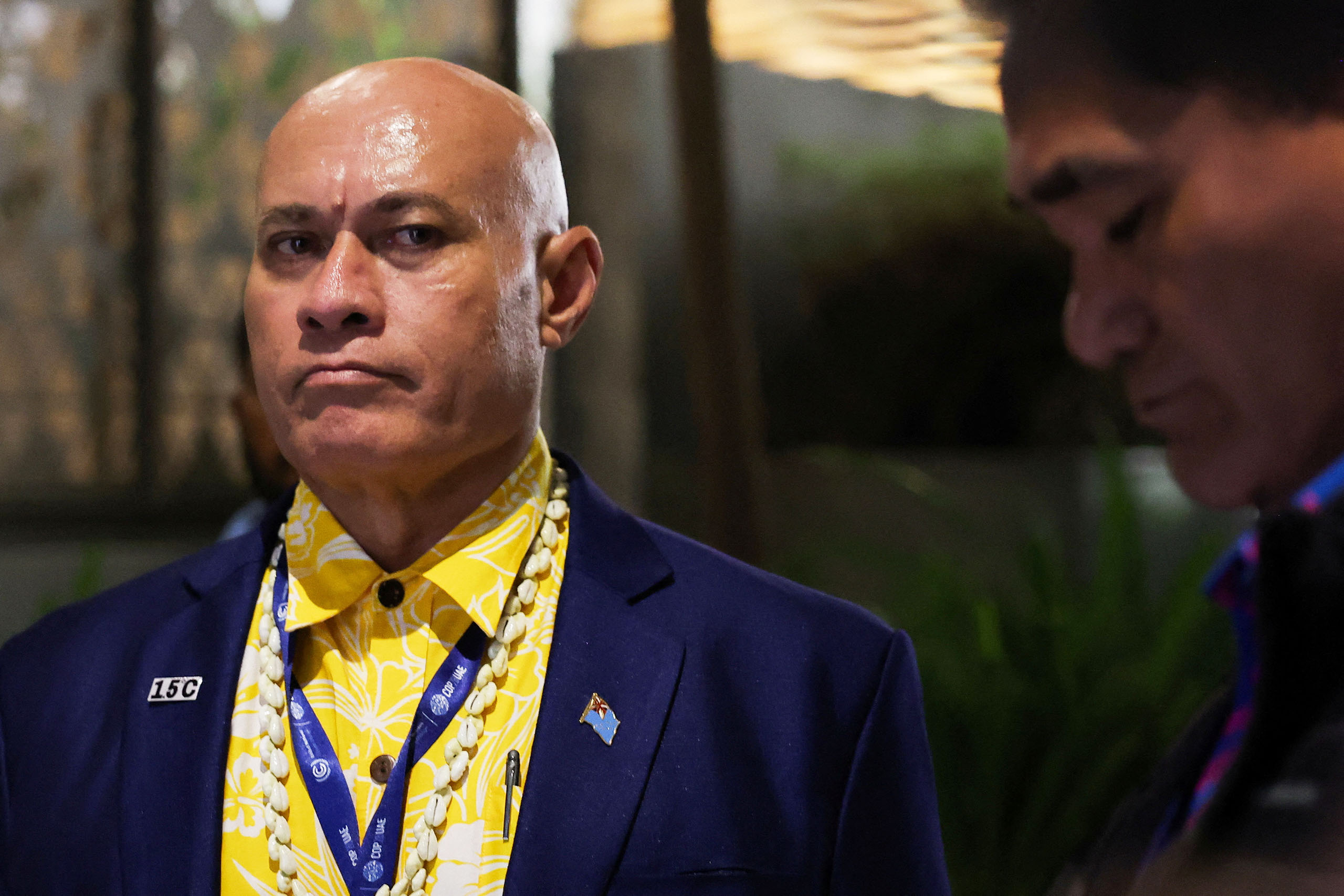
After Tuvalu’s ambassador to Taiwan, Bikenibeu Paeniu, told an Australian news outlet last week that his country might switch relations from Taiwan to China after today’s parliamentary elections, the question of whether Tuvalu really will make that shift has been preoccupying diplomats and other observers. The issue had already been raised when Nauru broke relations with Taiwan last week in favour of China after Taiwan’s pro-independence Democratic Progressive Party won yet another presidential election.
China has long sought diplomatic relations with Tuvalu. Individual officials at various levels in Tuvalu have reported frequent offers of aid if their island state makes the break with Taiwan, and international media raised the potential of a switch after Tuvalu’s 2019 election.
Why might Tuvalu decide to switch to China? And does it matter?
Personal connections, leverage and ongoing aid projects all provide insight into the first question. In a political system without parties or clear pro- and anti-China factions, personal connections matter. Two members of Tuvalu’s parliament are elected from each of its eight islands to make up the country’s sixteen-member parliament, and the prime minister is then elected by MPs from among their number. Some parliamentarians are friendly towards China (and others supportive of Taiwan), and if a pro-China MP were to gain the prime ministership they would certainly have the influence to push for a switch. This alone may have prompted Paeniu’s warning that Tuvalu could switch relations after the upcoming election, but this has potentially been true after any of Tuvalu’s elections.
Leverage is also important. Taiwan is heavily aligned with the United States and Australia, and Washington has pushed Tuvalu to maintain relations with the government in Taipei. Ironically, Tuvalu’s acquiescence has put it at a disadvantage, for the United States tends to focus its attention and aid on Pacific nations that have relations with China.
Tuvalu has recent experience of how leverage can work. In 2021, when Tuvalu was in full Covid lockdown, the state-owned China Civil Engineering Construction Corporation, or CCECC, helped transport Tuvaluan ministers via Guangzhou to COP26 and other meetings. The result — a sudden renewal of aid promises by the United States — showed that China could not only provide substantial aid to Tuvalu itself but also prompt the United States to increase its assistance. The fact that Taiwan, with its close ties to the United States and Australia, could never enable such leverage was suggested just this week by Tuvalu’s finance minister, Seve Paeniu, who is guaranteed a seat in the new parliament.
How was CCECC able to transport Tuvaluan ministers out of Tuvalu during Covid? The tendering methods used by the Asian Development Bank, or ADB, and the World Bank to award development projects, especially cost-based tendering, often favour Chinese companies and contractors. Although Tuvalu is allied with Taiwan, CCECC workers and supervisors were stationed on some of Tuvalu’s outer islands until 2022 as part of a major ADB-funded project to improve harbours. CCECC’s state ownership demonstrated firsthand for Tuvalu what cooperating with China on aid or development might look like.
For companies like CCECC, there is literally no political or financial downside to lobbying on behalf of China. If Tuvalu switches, they win political capital in Beijing and contracts for work on the ground. While many Chinese company managers resist the embrace of China’s party-state because it’s a bad look or it’s simply not their main priority, CCECC is a pure state-owned enterprise, unfettered by complex ownership structures or the need to please foreign stock exchanges.
When the Solomon Islands government was considering its diplomatic switch in 2019, CCECC’s regional manager visited Honiara to lay out US$500 million worth of development assistance on offer if Solomons leaders showed the wisdom to change their allegiance.
If Tuvalu’s new parliament chooses Beijing over Taipei, CCECC’s fingerprints will undoubtedly be visible. Yet research also indicates that the decision to choose one or the other allegiance often comes down to highly local and pragmatic choices. Tuvalu’s original decision to go with Taiwan had nothing to do with democracy or freedom: at the time, Taiwan was still enduring the longest period of martial law the world has ever seen. Tuvalu chose Taiwan because it had a problem with illegal Taiwanese fishing vessels and reasoned it would have more leverage if it recognised the Republic of China.
The same logic of better futures — the prospect of future investment, aid and diplomatic attention — will doubtless be used by Tuvalu’s next leader, regardless of whether the choice is to stay or to go.
The second question — whether Tuvalu’s decision matters — produces a different answer depending on where you’re sitting. Along with Taiwan, Australia is the only country with a diplomatic mission in Funafuti, and our diplomats would clearly prefer the status quo to continue. The Solomon Islands’ switch — facilitated by a leader with a longstanding history of bad blood with Canberra — represents the extreme end of possible outcomes, but Australia can also do without clumsy attempts by Chinese diplomats to influence local media or provide inducements to politicians to keep Tuvalu in Beijing’s column. It could also do without any impact a switch might have on finalisation of the Australia–Tuvalu Falepili Union.
In Beijing, another diplomatic switch so soon after Taiwan’s presidential elections would be welcomed, although you’d have to spare a thought for whomever they send to Funafuti. China’s Pacific diplomats look a harried bunch at the best of times; being under so much scrutiny in such a small town is not an enviable assignment. Taiwan’s new government, meanwhile, would find the question of why they continue to invest limited resources in a losing hand hard to avoid. For Tuvalu, the choice is theirs to make, and we should all respect their decision. •
The post Tuvalu’s Taiwan question appeared first on Inside Story.







